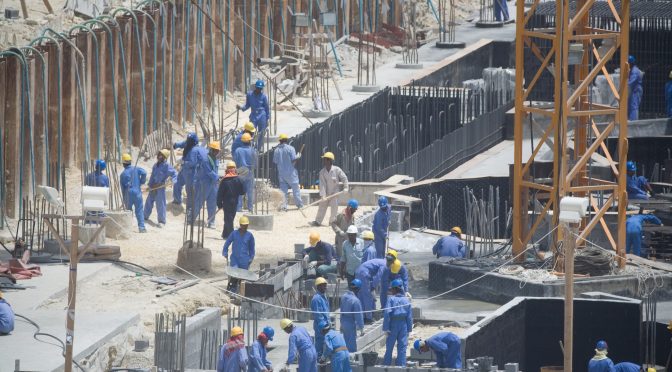A weekly round up of articles about employment, the labor market, skills training and workforce development. This week’s round up is drawn from The Daily Star. Here is the news for the week ending 14th July 2016.
This week in the Bangladesh English Press…
…the Bangladesh Bureau of Statistics reveals data on rural-urban migration while Bangladeshi migrant workers are still among the lowest paid in Middle East. Still no access to the Generalized System of Preferences but US retailers stand by Bangladeshi garment manufacturers. And Sirajganj will graduate 180 textile engineers a year through new institute.
Job seekers move to Dhaka and Chittagong
Experts believe young people are moving to towns and cities in search of economic opportunities. The capital and the second largest city are preferred destinations.
But Rajshahi division has the lowest rate of migration according to Bangladesh Sample Vital Statistics 2015. This survey of over 200,000 urban and rural households was carried out by the Bangladesh Bureau of Statistics.
There has been a net urban migration for several decades. But 2014 and 2015 saw significant rises in the rate of people moving to cities. It’s not just about jobs. Access to education and healthcare are probably also significant incentives.
Nine out of ten Bangladeshi migrant workers blue collar
Overall foreign remittances fell in comparison to last year.
Low oil prices spur Gulf countries to cut public infrastructure projects. And so there were fewer jobs in construction.
Sixty per cent of the $15 billion remitted in 2015 came from Bangladeshis in Middle East oil producing countries.
On a positive note remittances from the US and UK grew.
But the average Bangladeshi sends home about $2,000 a year. An Indian, $5,000.
The Bangladesh Bureau of Statistics carried out a survey in 2013. They looked at migrant labourers in the Middle East and East Asia. Ninety one per cent of Bangladeshi occupy blue collar jobs. And very few receive proper training before they migrate.
So the Government will raise the number of skilled workers.
And Bangladesh hosts the ninth Global Forum on Migration and Development this December.
Bangladesh fails Generalized System of Preferences test
Bangladesh again failed to readmit to a US trade agreement known as the Generalized System of Preferences.
The US suspended Bangladesh from the scheme in 2013 citing poor labour conditions in the garments sector. Of course this was shortly after the Rana Plaza Collapse.
The United States Trade Representative says Bangladesh’s latest report has not met the 16 actions required for re-entry to the scheme.
But at the end of the day Bangladesh exports goods worth $6 billion to the US every year. Most of these goods are garments.
Just $36 million of products were exported from Bangladesh to the US under the Generalized System of Preferences scheme prior to the suspension. What’s all the fuss about? Read our earlier post.
Some US companies are disappointed with the US Trade Representative’s decision. US makers of luggage, backpacks and handbags are struggling to find suppliers. African countries that benefit from favourable trade terms don’t have the capacity to supply. And Bangladesh, with it’s proven manufacturing sector, is still outside the scheme.
Textile engineers in demand; Garments industry goes forward
The government will set up a new textile engineering institute in Sirajganj. The new facility will cost around $10 million and graduate 180 engineers each year. But with the other 120 institutes in the country will not meet the demand for textile engineers.
Walmart, Gap and other members of the Alliance platform of US retailers will stand by Bangladesh.
The recent terrorist attack in the wealthy Gulshan neigbourhood of Dhaka raised concerns for business with Bangladesh.
Alliance’s goal is to create safe environments for garment factory workers. Member companies train Bangladeshi workers in fire safety and stop buying from local factories that don’t meet a range of safety standards.
And that’s all the news from The Daily Star this week.
